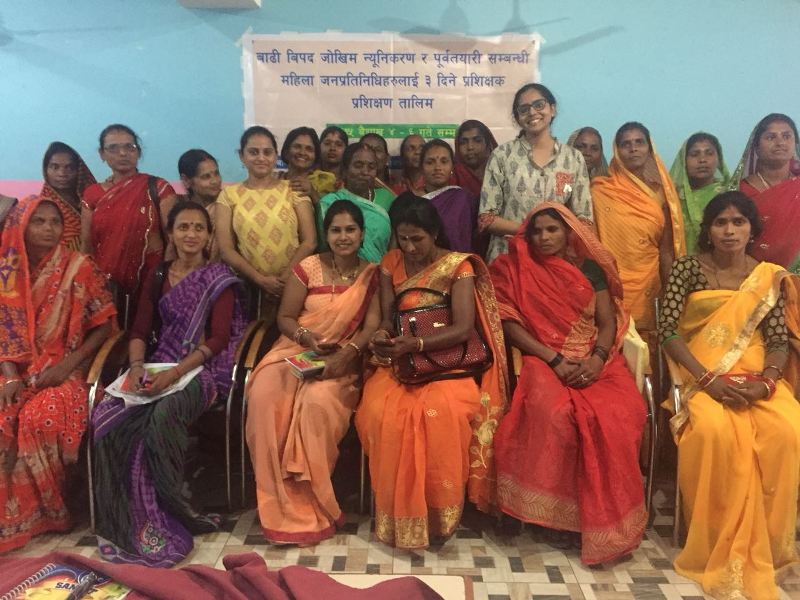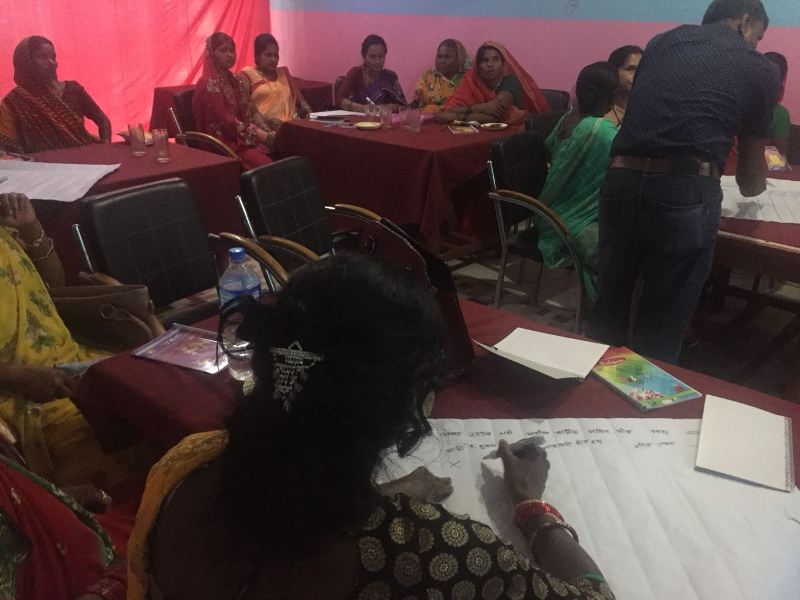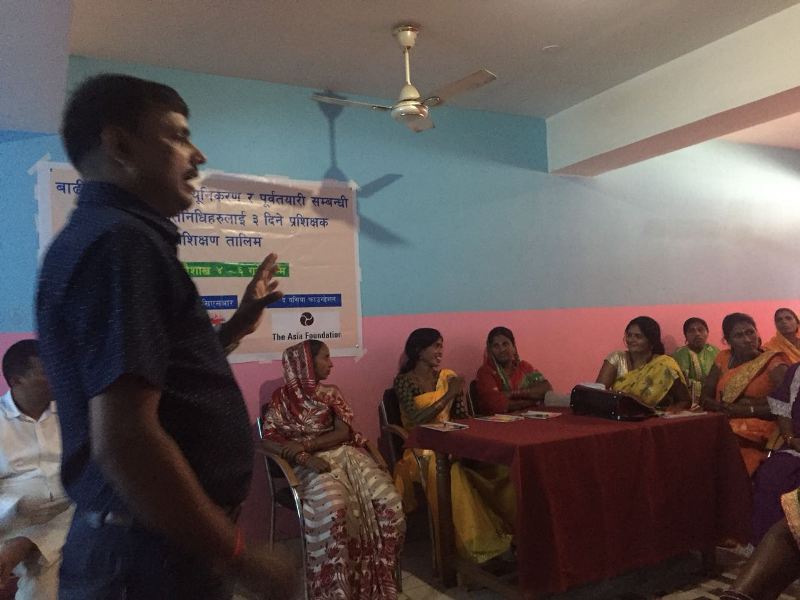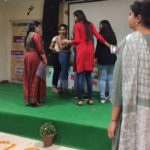CSR team recently undertook capacity building trainings in disaster-struck regions of Nepal under the aegis of ‘Transboundary Disaster Management Project’. The focus areas for these disaster management trainings were Saptari and Sunsari in Nepal, and the target groups were the newly elected women representatives (EWRs) of these districts. To give a brief background, this was the second phase of The Asia Foundation funded project, and upon seeing sweeping positive results, a three-day training for the new women representatives in each district, became an unsaid and powerful proposition.


As a first timer in Nepal, a country continuously struck by natural disasters, not to forget the aftermath of which is still pervasive, my first observation was that the people of Nepal are extremely resilient. The agonizing earthquake of 2015, and the recurrent annual floods due to the Kosi river basin, has been equally responsible in human, financial and property loss. It’s too soon to say that there is a semblance of normalcy in the regions we visited as the impact of floods is etched on roads, infrastructure and very blatantly on human minds. But, what has been a sliver of transformation in this situation is to see the active role of women in disaster risk reduction. Since its inception, the project has aimed to draw on this strength so as to improve women’s responsiveness and preparedness to disaster. More importantly, since earlier we were successful in training almost 3000 EWRs, the onus this time is to uphold this resolution by liaisoning with local government structures, and stressing on the formalization of women’s role in disaster management. In the run-up to that, we are also creating ‘transboundary committees’ so that the EWRs in both the districts can exchange ideas, and share common solutions to common problems.


We were in Saptari from 17th-19th April, and in Sunsari from 20th- 22nd April, with a diligent set of EWRs who had immense prior knowledge of disaster because unfortunately, they have encountered the horrors of disasters in their lifetime. In the words of Radiya Devi Khang, Women Representative from Saptari, “I live at a stone’s throw from the Kosi river, and every year I have to watch destruction”. The strength of participants was decent with a whopping 20 EWRs, who actively participated in the training activities. These activities included presaging the natural disasters they encounter every year as per the seasonal calendar in Nepal, i.e, the Mousami calendar. The second day encompassed resource mapping so as to elucidate on the infrastructure that is provided to them by the government to combat floods, the infrastructure they have created on their own, and the deficient resourced which they direly need. For the third day, a role-playing activity was organized to test their sense of reaction at times of emergencies.


Throughout the training days, our local NGO partner in Nepal, Samudayik Sarthi, under the guidance of Tara Bahadur Bhandari, conversed with these EWRs in their native language, made innovative use of ICT to explain natural disasters and their causes to these EWRs. For instance, we ventured into theoretical groundings with questions about whether disaster is a harbinger of hazard or the vice-versa. It was interesting to follow the participants’ understanding of the subject, and they were quick to point out that they do the rudimentary action-planning at their instinct, which goes unnoticed and unacknowledged. The gender component of these trainings remained intact as these women leaders revealed that safekeeping of important documents like passports is expected of them, as their husbands associate it to be an extension of women’s ‘family care duties’. At many junctures, it was reiterated by the EWRs that these trainings should also be conducted with men. Even though these light-hearted statements may be ostensibly innocuous, there is serious scope for men to be involved in recognizing women’s role. During the last day of training, we were joined by past participants (kudos as they are now members of the Nepal Parliament) who spoke about their learnings from these trainings, and encouraged the present set to be very vocal about improving disaster prevention strategies in their villages. Lastly, the training concluded with felicitation ceremony of these EWRs which was attended by government officials. In Saptari, Nagar Palika representative interacted with EWRs and urged them to continue their work and promised the government’s support. In Sunsari, Inurwa, we were joined by the Mayor who recognized the scaring propensity of floods and called for increasing female participation to minimize the aftermath.




